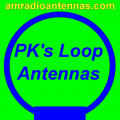G8JNJ
About
- Username
- G8JNJ
- Joined
- Visits
- 4,663
- Last Active
- Roles
- Member
- Points
- 130
Reactions
-
TDoA extension operating notes
Some further notes that may help folks who are trying to use this extension.
There are still quite a few bugs to be sorted out, but I have been able to get very accurate locations, certainly close enough to be able to find the TX site on Google Earth & Street View
e.g.
https://www.google.co.uk/maps/@51.8090686,3.8966839,3a,60y,246.34h,90.69t/data=!3m6!1e1!3m4!1sUQvXw0TenHFOgXCRkkrKQA!2e0!7i13312!8i6656
Brief 'How To' based on my experience so far.......
I find that in order to get consistent results, if I make any major changes to the setup of the signal being detected, I have to refresh the browser and reopen the TDoA extension
Set the mode to I/Q and reduce the bandwidth to just cover the target signal.
Then set the SDR map to cover the target area, be careful not to 'nudge' the frequency on the waterfall whilst doing this.
Check each KiWi you are intending to use can hear a clean signal by double clicking on the KiWi 'flag' on the map, before adding it to the list
Choose KiWi's carefully. You can use KiWis much closer together for signals on the lower frequencies typically <5MHz. But for higher frequencies you need to use KiWi's much further apart in order to ensure that each KiWi is the correct 'skip distance' away from the likely signal source
TDoA works the best if you can choose SDR's that are approximately the same distance away from the likely source of the transmission
Ideally the SDR's should be chosen as opposing pairs, either side of the likely source of the transmission, for example one North and another to the South, a further pair to the East and West would then give the best results.
If all of the SDR's are on one side of the likely source of the transmission, the results can be ambiguous, so it is always best to experiment with different SDR's in order to find the ones that give the clearest indication.
Northern Europe is fairly well covered but Southern Europe is not. More TDoA KiWi's in places like Portugal, Spain, Tenerife, Ascension Island, Azores and Africa are required
Once running the sampling should only take 40 seconds at most.
I suspect that the process can fail if one of the previously chosen KiWi's becomes too busy, or looses GPS lock in the time between initial selection and actual sampling.
If the sampling phase takes longer than 1 minute, refresh the browser and start again.
Once the sampling has finished it may take several minutes to get a result back from the server.
If the server running Octave can't get a good correlation it will also fail, sometimes without an error message and it just keeps trying.
If the TDoA running phase hasn't finished after 5 mins, refresh the browser and start again.
I usually start with just 3 KiWi's to get a rough location and then zoom in as required. Take a look at the maps from pairs of KiWi's and delete the KiWi's that that don't provide good clear contours from the list, then add somenew ones and try again.
Sometimes it may take two or three attempts to get a good map back.
If you don't get good clear results, try running it a few more times, as sometimes the propagation is not favourable during a sampling run, but may improve on subsequent ones.
I have tried it with AM, RTTY, STANAG, SSB and other digital modes, including some short duration burst type signals, and with perseverance have managed to get good results. The only type of signal I have had difficulty with has been Morse.
Regards,
Martin - G8JNJ -
Direction Finding and linking existing KiwiSDRs
Hi John,
Excellent and very timely :-)
There is currently a problem with a military FSK signal in the 40m amateur band that folks have been trying to ID. I ran a TDoA on it this morning and was able to narrow down the likely transmitter site fairly accurately (given the number of KiWi's currently listed.
So a big thanks to all concerned especially John, Christoph, linkz and others who have managed to make this work.
I don't think I'm overstating it when I say that this is likely to be a real game changer, especially when trying to ID unknown or interfering signals and makes what would previously have been only within the capability of national regulators or the military available to everyone.
This is truly ground breaking.
Regards,
Martin - G8JNJ -
S-meter extension
Hi John,
This week I've been trying to use a number of KiWis to perform some antenna field strength measurements, but its been a somewhat frustrating process.
So I'd also like to echo Jim's request for an option to allow the the S-meter logging period to be even slower, perhaps up to 24hrs, so that I could also use it to monitor changes in my noise floor, signal levels from BC stations and other propagation related monitoring.
It's currently a real pain to have to derive this information from the graph image and the subsequent visual resolution is only about 3dB or so, it's also difficult to check for max values over a period of time or try to determine the signal average level. I know there is already a request to provide this functionality, but I also know that there are more pressing or higher priority fixes to be implemented first.
I wondered if it would be possible to add a function to store and be able to download the graphed dBm values as a CSV file. Each value to be timestamped and the header to the contain frequency and RX bandwidth.
This would permit much more detailed off-line analysis of max /min values, averages and other trends, which wouldn't need to be added to the existing graphing option. Maybe sampling intervals could be defined or automatically selected as a function of logging period so that huge files are not generated. Each time the S-meter restarts the file could be overwritten, perhaps a bit like the fax image files ?
Regards,
Martin - G8JNJ -
What is the status of the WSPR background and autostart features? [added in v1.181]
Hi John,
Also be aware that there is some controversy regarding the frequencies used for WSPR on 80m.
"with WSJT-X v1.8 we intend to correct an anomaly that has existed for a long time in that Japanese amateur radio operators have no privileges for the frequencies commonly used for WSPR, JT65 and JT9. The current frequencies (USB dial frequency) are:
WSPR 3.592600 MHz, JT65 3.576000 MHz, JT9 3.578000 MHz
because we strongly prefer that WSPR and JT mode frequencies are globally coordinated where possible, the proposed new frequencies are:
WSPR 3.568600 MHz, JT65 3.570000 MHz, JT9 3.572000 MHz, FT8 3.573000 MHz
This places the conventional 200 Hz wide WSPR sub-band (centred around +1500 Hz audio offset) into the lower 200 Hz the JT65 sub-band. The lower 200 Hz of the JT65 sub-band is not used due to SSB filter roll off."
Most folks are sticking with the original allocations, but you may wish to include the new(ish) proposed frequency in the KiWi WSPR decoder list of frequencies.
Regards,
Martin - G8JNJ -
LZ1AQ LNA and a 1.2 meter copper loop antenna.
Hi Ron,
Reducing the loop inductance (for a given size) is something worth trying if you want to improve the performance still further on the HF bands (>10MHz).
This is less critical when you are using a loop amplifier with a fairly high input impedance, but in the LZ1AQ design it is only in the region of a few ohms (which is great for the LF bands), so loop inductance becomes a critical factor as you go up in frequency.
You can either make the loop a lot 'fatter' to reduce the inductance, connect several same size loops in parallel (but spaced by a few inches), or cross-connect four or more independent loops together.
Chavdar has good notes on this subject on his website.
http://active-antenna.eu/tech-docs/3_ActiveAA_Antena_11.pdf
Regards,
Martin - G8JNJ -
Home Brew Broadband Magnetic Loop
Hi Ron,A couple of weeks ago I received a private email about this circuit, and decided to make a copy, as the person who wrote was having problems with it, and I couldn't figure out how the circuit could perform as described.I found that the IMD performance was poor and it had several other issues which couldn't be easily fixed.If you want to build or buy an amplifier of this type, my advice would be to take a look at the DXE RPA-1 circuit instead. Regards,Martin - G8JNJ
Regards,Martin - G8JNJ -
Wellgood balanced loop amplifier, (Wellbrook clone).
-
Wellgood balanced loop amplifier, (Wellbrook clone).
Hi Ron,It's basically two Norton lossless feedback amplifiers connected in a push pull arrangement.The winding in the emitter circuit provides negative feedback and the ratio of the windings sets the amount of feedback and therefore the overall gain of the amplifier stage.I'm not at home at the moment so I can't access my list of web links, but try a Google search for Chris Trask's papers on lossless feedback for more information.When you reduce the supply rail it may reduce the noise floor, and also possibly reduce the gain, which also may give the impression of reducing the noise floor. But below about 3v the bias point of the transistors is way off and the output power capability (and therefore IMD performance) is seriously reduced. What you are observing may actually be a secondary artifact resulting from something else changing which is in turn 'fixing' another problem such as FM BC interference, amplifier oscillation or some other out of band parameter which is impacting the overall performance.One final thing - it may be that George's 'reverse engineering' is not 100% accurate, especially regarding the construction and winding of the feedback transformer. I suspect that the two amplifiers maybe should be wound on two separate halves of the binocular core but that the input winding is common to both. This is how Trask has implemented some of his augmented push pull amplifiers, but I can't confirm this is how the Wellgood design works.If you have an opportunity I'd suggest that you also try the LZ1AQ amplifier design http://www.lz1aq.signacor.com/docs/wsml/wideband-active-sm-loop-antenna.htm as a comparison. It's actually easier to build if you leave out the regulator and just feed the output into coax rather than using CAT 5 / 6 cable.I found that the LZ1AQ performed at least as well, if not better, than the Wellgood clone. But as I stated earlier this may be actually be due to an error in the reverse engineered circuit.The Yahoo Groups Loops forum is other very useful source of information and is frequented by Trask and Wellbrook. There has been some discussion regarding the Wellgood copy and Wellbrook don't seem to be that bothered that the design is now out in the open. This could be because they have now moved to a new design, or it could be that George's Wellgood circuit isn't correct and they don't want this to be known.Regards,Martin - G8JNJ -
A Bias-T and active antenna performance
-
Home Brew Broadband Magnetic Loop




